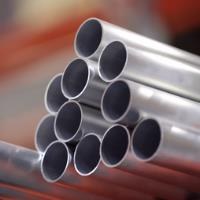(BRUSSELS) – In its response to the US imposition of tariffs on steel and aluminium products, the European Union decided Wednesday to apply additional duties to selected imports from the United States from July.
The EU Commission has decided to impose additional duties on the full list of US products notified to the World Trade Organisation (WTO) and expects to conclude the relevant procedure in coordination with Member States before the end of June.
The Commission says the application of the rebalancing duties is fully in line with WTO rules, and corresponds to a list of products previously notified to the WTO.
The WTO Safeguards Agreement allows for a ‘rebalancing’ corresponding to the damage caused by the US measures with EU exports worth 6.4 billion (2017) being affected.
The EU says it will exercise its rights immediately on US products valued at up to 2.8 billion of trade. The remaining rebalancing on trade valued at 3.6 billion is to take place at a later stage – in three years’ time or after a positive finding in WTO dispute settlement if that should come sooner.
“This is a measured and proportionate response to the unilateral and illegal decision taken by the United States to impose tariffs on European steel and aluminium exports,” said Trade Commissioner Cecilia Malmstroem. “What’s more, the EU’s reaction is fully in line with international trade law. We regret that the United States left us with no other option than to safeguard EU interests.”
The imposition of rebalancing duties on a list of selected US products is part of a three-pronged response outlined by the Commission, that includes the launch of legal proceedings against the US in the WTO (on 1 June) and the possible triggering of safeguard action to protect the European market from disruptions caused by the diversion of steel from the United States market.
On this, an investigation was launched on 26 March and the Commission has nine months to decide whether safeguard measures would be necessary. If the investigation confirms the necessity for swift action, such a decision could be taken by summer.
As regards aluminium, the Commission has put in place a surveillance system for imports of aluminium to be prepared in case action is required in that sector.
On 7 March, the College of Commissioners decided that the Commission should continue engaging with the US on other trade-related processes. A trilateral meeting with the US and Japan took place on 31 May in Paris, during which progress was made to address some of the root causes of the current tensions in the trading system, including China’s trade distorting practices.



